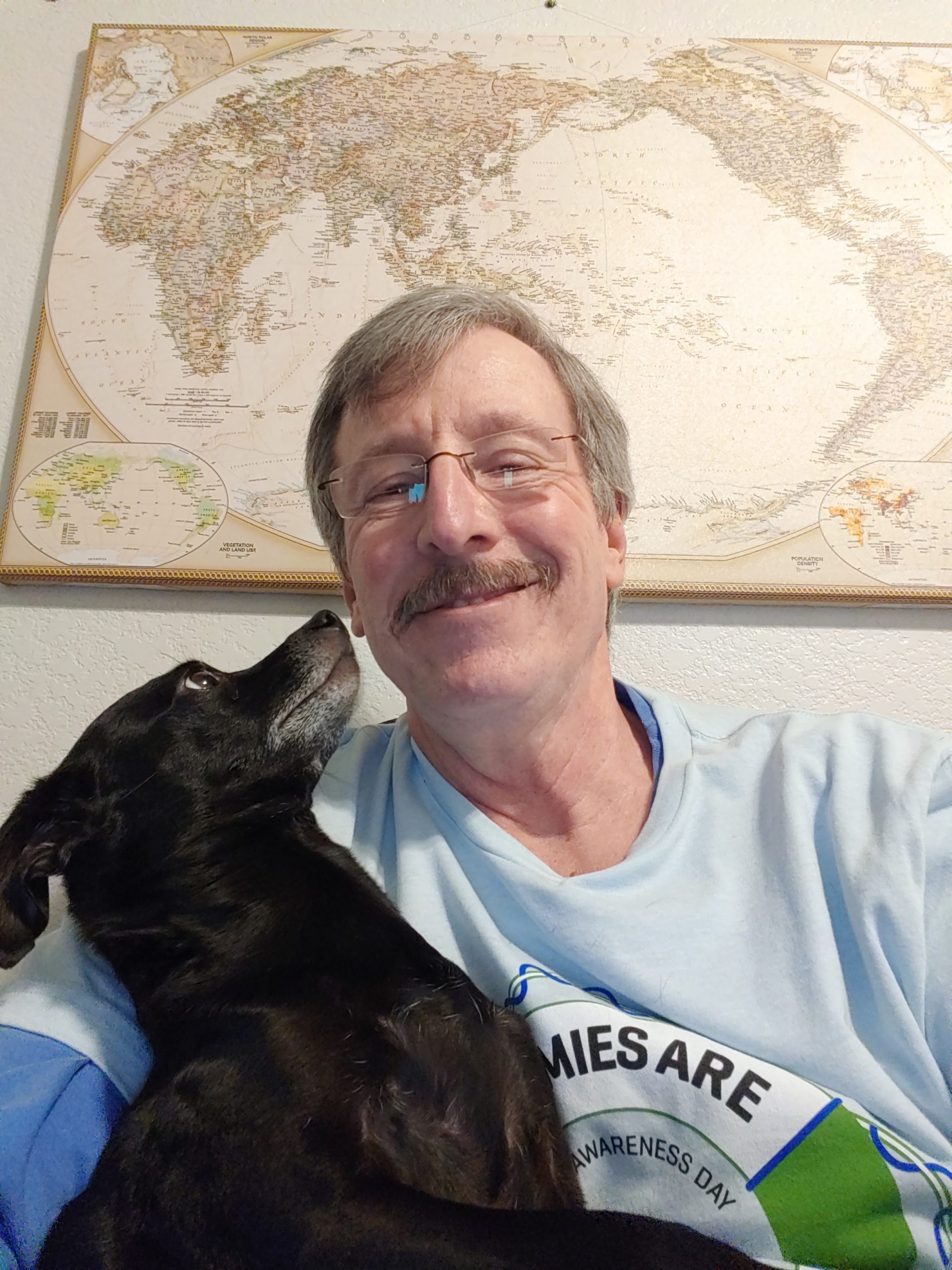Honoring Rare Disease Day, FEBruary 28
What genetic testing revealed for one remarkable colorectal cancer survivor
 After his 50th birthday, Navy Veteran Dan Shockley went in for his first colonoscopy after being encouraged by his doctors at the V.A.
After his 50th birthday, Navy Veteran Dan Shockley went in for his first colonoscopy after being encouraged by his doctors at the V.A.
“I had no symptoms,” Dan said. “No indication anything was going on, other than an unexplained 14-pound weight loss the previous year.”
But what Dan’s gastroenterologist found was far from routine: over 100 polyps embedded throughout his colon and rectum, one of which was causing an 80% blockage in his ascending colon.
Dan’s doctor immediately referred him to a certified genetic counselor. Six weeks later, Dan’s lab results came back. He was diagnosed with an extremely rare genetic mutation, AFAP (Attenuated Familial Adenomatous Polyposis).
After a consultation with a colorectal surgeon, Dan underwent a total proctocolectomy with ileostomy–a life-saving surgery that removed his entire colon and rectum.
“When I got the diagnosis, I embraced it. We have two choices in life: we can react or we can respond. I wanted to respond, having my medical team guiding me along.”
Dan has since made it his life work to speak around the world, sharing about hereditary colon cancer syndrome and the importance of early detection. You can hear the full version of Dan’s incredible story on our podcast here.
What’s the link between genetics and colon cancer anyway?
Dan’s story is just one example of how genetics can contribute to increased risk of cancer. While not all of us have a rare disease, we should all pay attention to what our family history and DNA could be telling us about our risk for developing cancer.
We’ve known for a while that family history of CRC or polyps puts a person at high risk for CRC. But many of us have gaps in our family history and are left wondering.
Not only can genetic testing help fill in the gaps, but it can also help patients get ahead of a cancer diagnosis. By examining a sample of saliva or blood, genetic counselors can identify mutations that increase cancer risk.
One common genetic condition linked to cancer-risk is Lynch syndrome (LS). It is estimated that 1 in 279 persons carry this mutation, but less than 1 in 10 of them know before receiving a cancer diagnosis.
Patients who receive an earlier diagnosis of LS have more success managing their personal downstream cancer risks. They are able to make informed decisions regarding their preventative care, including earlier and more frequent screenings that may uncover second or new cancers. LS patients may also undergo risk-reducing surgeries for endometrial or ovarian cancers, as well as chemoprevention. Their family members are encouraged to undergo cascade testing to identify if they too are mutation carriers, so that they too can take appropriate action towards risk-reducing, preventative care.
Want to start exploring your genetics and family history of cancer? Check out the tools on our Genetics Page.
Could I be a good candidate for genetic testing?
If you think you may be a good candidate for genetic testing, start the conversation with your healthcare provider when you begin screening.
We can all follow Dan’s example by taking action immediately when our time comes to screen for colon cancer. The American Cancer Society now recommends people begin screening at age 45 (or earlier if you have a family history of colon cancer or polyps!).
Is it affordable?
In 2019 legislation was passed that requires Kentucky Health Benefit Plans to cover genetic testing for patients at risk for cancer. Learn more here.
You must be logged in to post a comment.